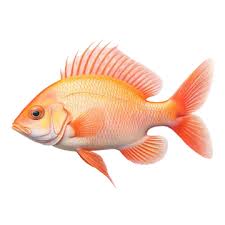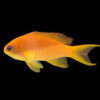The Dragon and Its Presence in the Battles Between Gods: A Mythical Conflict of Power and Chaos

The dragon, a powerful and mysterious creature, has long been associated with gods, deities, and the cosmic forces of creation and destruction in various cultures around the world. It is often seen as a symbol of strength, wisdom, and fear, representing the balance of nature and the forces of chaos. However, in many ancient mythologies, dragons also play a prominent role in the epic battles between gods and other divine beings. These dragons are not merely passive creatures but active participants in some of the most crucial and intense struggles between deities.
In this article, we will explore the role of the dragon in various myths and stories of divine warfare. These dragons often represent the forces of chaos, destruction, and primal power, and their involvement in these divine conflicts highlights their symbolic significance in both cosmic and earthly struggles. Through the lens of these mythologies, we will uncover the profound meanings behind the dragon’s role in the celestial battles between gods, whether as a formidable opponent, a guardian of ancient secrets, or even as an instrument of divine wrath.
The Dragon as an Adversary in Divine Conflicts
In many mythological traditions, the dragon is portrayed as an adversary that must be defeated by gods or heroes in order to restore balance to the universe. These creatures are often viewed as embodiments of chaos, evil, or primordial forces that challenge the gods’ authority and threaten the established order. The dragon’s role in these divine battles is usually to disrupt harmony and challenge the very fabric of existence.
In Norse mythology, the battle between gods and dragons is a recurring theme. One of the most famous examples is the story of Fafnir, a dwarf who turned into a dragon after being consumed by greed. Fafnir hoarded a vast treasure, and his transformation into a dragon represented the dangerous power of greed and corruption. The hero Sigurd (or Siegfried in some versions) was tasked with defeating the dragon and retrieving the treasure. In this myth, Fafnir is not just a dragon but a symbol of the destructive power of unchecked desire. His defeat by Sigurd represents the triumph of divine justice over chaos and corruption.
Similarly, in Greek mythology, dragons often appear as formidable opponents of the gods. The most famous example is the Lernaean Hydra, a multi-headed dragon-like creature that was defeated by Heracles as part of his twelve labors. The Hydra represented an overwhelming and multiplying threat, as each time one of its heads was cut off, two more grew in its place. This creature symbolized the never-ending chaos that sought to undermine the gods’ rule. Heracles’ victory over the Hydra, like Sigurd’s defeat of Fafnir, symbolized the triumph of divine order over the destructive forces of chaos and disorder.
The Dragon as a Divine Weapon or Servant
While dragons are often depicted as adversaries in divine conflicts, there are also instances where they serve the gods, acting as divine weapons or instruments of destruction. These dragons are sometimes called upon by the gods to help achieve their goals or punish those who defy divine will.
In Chinese mythology, dragons are powerful and benevolent creatures associated with water, rain, and the heavens. However, they are also used by the gods as instruments of divine intervention. For example, in the story of the Great Flood, the dragon is called upon to help control the flooding waters that threaten the world. The dragon’s power to control water and bring rain is harnessed by the gods to restore balance to the earth. In this case, the dragon is not an adversary but a powerful ally in the battle between order and chaos.
Similarly, in Hindu mythology, dragons, often referred to as Nāga, are divine serpents that serve the gods, especially the god Vishnu. In the epic Mahabharata, the Nāga play important roles in both the celestial and earthly realms. The Nāga are often associated with water, wisdom, and the protection of sacred treasures. They are sometimes called upon by the gods to protect sacred artifacts or punish those who defy divine authority. The Nāga, like the Chinese dragons, are not merely destructive creatures but are integral to the gods’ efforts to maintain cosmic order.
The Dragon as a Symbol of Divine Wrath and Justice
In many traditions, dragons are not only agents of destruction but also embodiments of divine wrath and justice. They are often depicted as the instruments of gods who wield their power to punish mortals or rival gods who defy divine law. The dragon’s role in these divine conflicts emphasizes its association with the primal forces of nature, chaos, and the wrath of the gods.
One of the most striking examples of the dragon as a symbol of divine wrath can be found in Christian and Judeo-Christian mythology. In the Bible, the dragon is often associated with Satan or the forces of evil. In the Book of Revelation, the dragon is described as a great serpent who wages war against the forces of good, particularly the archangel Michael and the heavenly hosts. The dragon’s defeat in this cosmic battle represents the victory of good over evil, with the dragon’s destruction symbolizing the triumph of divine justice.
In Mesopotamian mythology, dragons were often seen as the embodiments of chaos, and their defeat was seen as a means of establishing divine order. One of the most famous examples is the myth of the Enuma Elish, the Babylonian creation epic, in which the god Marduk defeats the dragon Tiamat, who represents the primordial forces of chaos and disorder. Marduk’s victory over Tiamat is not just a battle between gods but a cosmic struggle between order and chaos. The dragon’s destruction is the catalyst for the creation of the world, and Marduk’s rise to power signifies the establishment of divine rule and justice.
The Dragon as a Protector in Divine Conflicts
In addition to its role as a destructive force, the dragon is also sometimes depicted as a protector in battles between gods. In some myths, the dragon’s role is to defend sacred places or objects from the forces of evil or chaos, ensuring that the divine order is upheld.
In Japanese mythology, the dragon is often seen as a protector of sacred places, particularly temples and shrines. The Ryujin, a dragon god of the sea, is considered a guardian of the waters and the guardian of the sacred treasures that lie beneath the sea. In many stories, Ryujin is called upon by the gods to defend these treasures from evil spirits or other malevolent forces. In this context, the dragon represents the force of divine protection, guarding what is sacred and ensuring that divine will is upheld.
Similarly, in Celtic mythology, dragons are often seen as protectors of the land and its people. The dragon’s presence in these myths signifies the protection of the sacred spaces of the gods and the divine will. In some versions of the Welsh and British myths, dragons are believed to protect the land from invasion and ensure that the natural order remains undisturbed. This protective role of the dragon highlights its association with the preservation of divine order and the defense of sacred places.
Conclusion: The Enduring Symbolism of the Dragon in Divine Conflicts
The dragon’s role in the battles between gods and the forces of chaos is a recurring theme in mythology. Whether as a formidable adversary, a divine weapon, a symbol of wrath and justice, or a protector of sacred spaces, the dragon plays a crucial role in the cosmic struggles that shape the world. Its presence in these stories reflects the deep symbolism of the dragon as a creature of immense power, capable of influencing the forces of nature, fate, and divine order.
Through these myths, we see that the dragon is not just a creature of destruction but also a symbol of the primal forces that govern the universe. It embodies the tension between order and chaos, good and evil, creation and destruction. In the battles between gods, the dragon serves as a reminder of the forces that shape the world and the divine will that must be upheld.
As a symbol of power, wisdom, and divine wrath, the dragon continues to captivate the imagination of people around the world. Its presence in the battles between gods reminds us of the eternal struggle between the forces of good and evil, and the role that divine beings play in maintaining the balance of the universe. Through the lens of these ancient myths, we gain a deeper understanding of the significance of the dragon as a symbol of cosmic conflict and divine justice.

